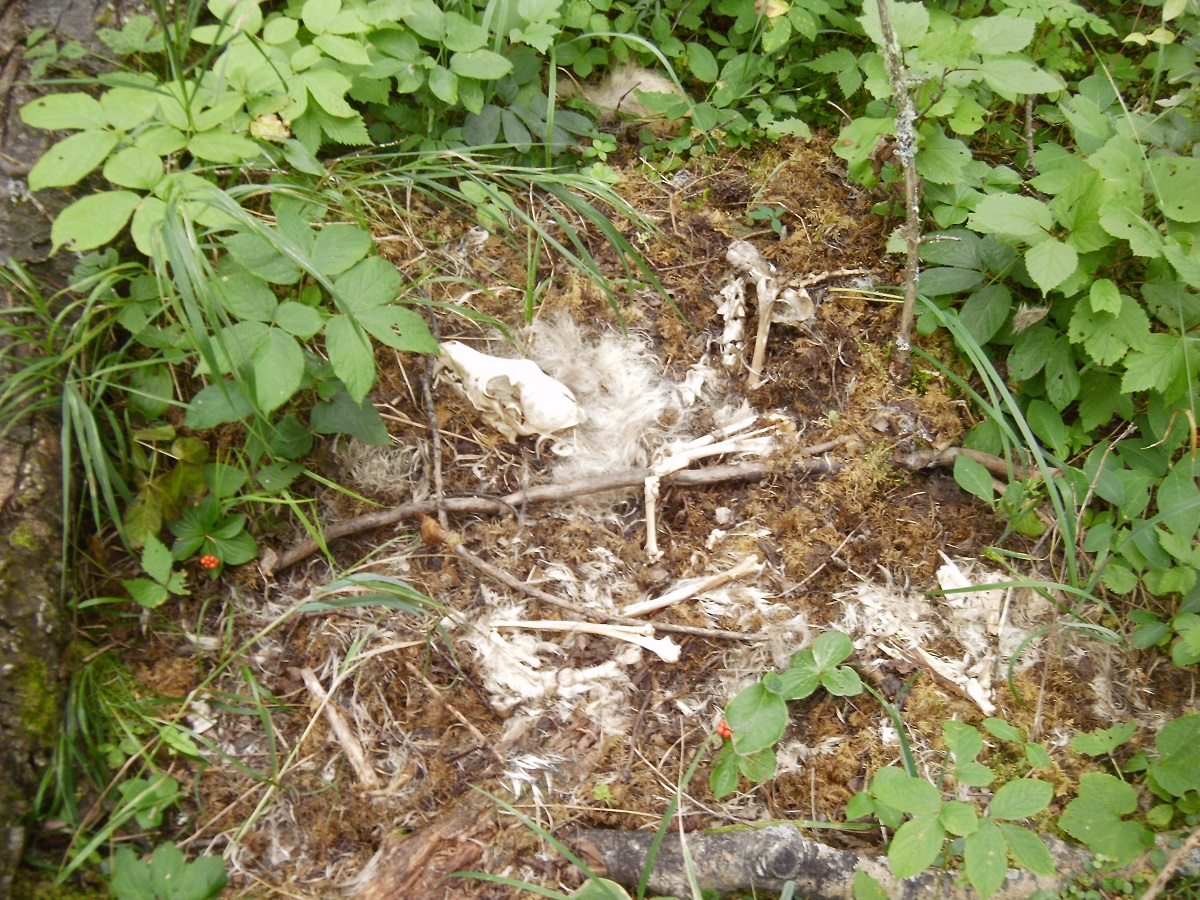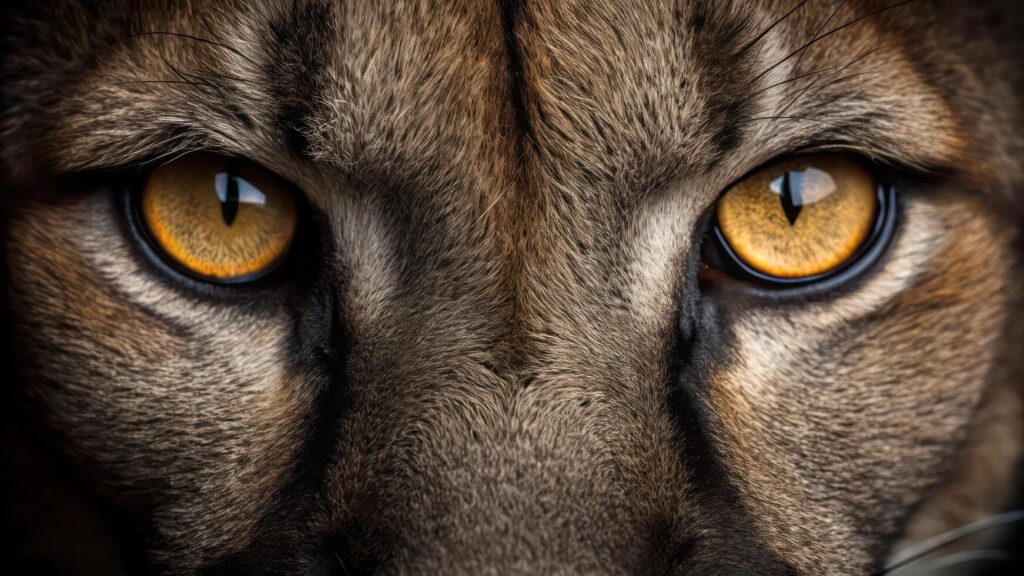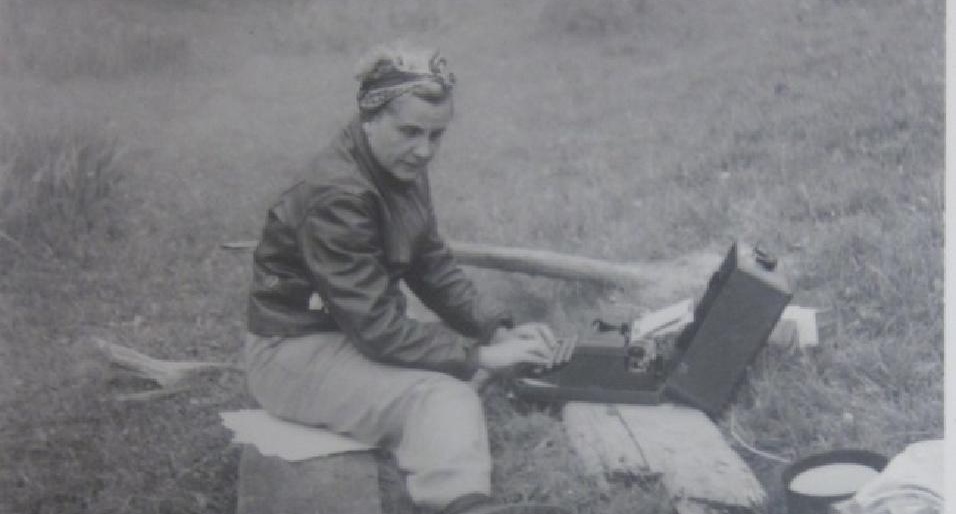Post Category : Field Life
Animal Bones
By Britt Romano on July 5, 2017
During an archaeological survey or excavation when animals bones are found, we look for signs that they were somehow modified or processed by humans. Animals were not only a source for food, but their skin, fur, and bones had many other uses. We might find cut marks from a knife made during butchering, or the bone itself might be shaped into a tool such as an awl. If the animal seems to have been killed or somehow used by humans we can classify it as an artifact.
However, not every animal bone that we find is an artifact. Sometimes during a survey, a test pit might have an animal bone in it. If no other artifacts were found in the area and the bone shows no signs of human use, then we cannot call it an artifact. Nature does takes its course without human interference. The animal remains pictured here serve as a reminder of that. These remains, likely of a wolf, found in the summer of 2014 will eventually be buried over time.

Related Posts
By Fallon Hardie

May 19, 2025
Fight or Flight: Lessons Learned From a Cougar Encounter
While completing Historic Resource Impact Assessments in the Lower Eastern Foothills of Alberta sometime during the Summer of 2023, maybe mid-July or August, I experienced something statistically unlikely: a cougar encounter. Like any professional working in the wilderness, I have completed numerous Bear and Wildlife Awareness training courses over the years, all of which have
Keep ReadingBy Braedy Chapman

July 2, 2023
Top sites of 2022, BC edition
Field operations in British columbia 2022 marked Ember Archaeology’s first year of significant field operations in British Columbia. Our BC crews conducted a number of sizable wildfire-related projects for the BC Ministry of Forests over the course of the season, ultimately surveying hundreds of kilometers of constructed fireguards and fuel reduction developments. These were nearly
Keep ReadingTags: 100 Mile House | Anaheim Peak | Archaeology | Arrowstone Hills | Athapaskan | Baezaeko River | Biface | British Columbia | Cache Creek | Chilcotin | CRM | Dacite | Early Nesikep | Interior Plateau | Lehman Phase | Lithics | Maiden Creek | Nazko | obsidian | projectile point | Side notched | Sites
By Megan Williams

March 8, 2023
Elsie Jury
International Women’s Day In celebration of another International Women’s Day, Ember Archaeology would like to share the life and accomplishments of another impressive archaeologist, Elsie McLeod Murray Jury. Known for being a trowel blazer in the understanding of historical archaeology in Ontario, Elsie Jury worked at many archaeological sites across the province and helped to
Keep ReadingTags: Archaeology | Elsie Jury | International Women's Day | Ontario | Ontario Historical Society | Sainte-Marie | Sites
